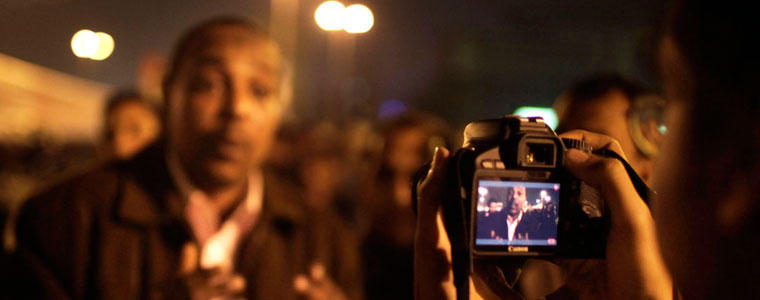With the ouster of President Mohamed Morsi in Egypt, the ongoing civil war in Syria, and the protests in Turkey, a common reaction by governments has been to directly threaten the openness and vibrancy of media in an effort to overpower the messages of activists. But the tactics that these governments employ can differ widely.

The latest responses from Turkey, Egypt and Syria are emblematic of the range of tactics used. They include direct intimidation or imprisonment of social media activists and journalists, disruption of access to online sites or platforms, the shutdown of media offices, the mobilization of pro-government advocates, and blackouts of Internet service.
What follows is a synopsis of the different approaches taken by these governments to stifle traditional and social media coverage during the uprisings.
Turkey
Prime Minister Recep Tayyip Erdogan’s administration has employed a variety of assaults on media freedoms in Turkey since the protests began on May 31. In one case, legislation was adopted to restrict the use of social media, resulting in the arrest of 29 people for “inciting riots” using social networking sites.
The Turkish government then reached out to Twitter to request that the network be more accessible by setting up an office inside the country, a step that also might make it easier for officials to exert control. Erdogan himself made several sneering comments about social media, calling it “a menace to society” and describing Twitter as a "scourge." Finally, Erdogan’s administration made several public statements saying officials were coordinating with Facebook. Facebook responded swiftly, denying the claim and stating that the network had not provided any user data to the Turkish authorities.
Ironically, Erdogan is an avid user of Twitter, with more than 3 million followers. One of his party allies, the mayor of the capital Ankara, Melih Gokcek, has written more than 40,000 tweets and has upwards of 750,000 followers. The administration also used the same online platforms that it was criticizing to discredit journalists who reported from the protests in Istanbul.
Egypt
The recent removal of President Mohamed Morsi brought with it a wave of media suppression. During the June 30 protests, the military shut down four TV stations, banned newspapers and raided the office of Al Jazeera's Egypt affiliate, Mubasher Misr. All of the media targets were accused of being pro-Morsi, and most had their equipment confiscated. Several journalists and reporters were detained.
An Egyptian general made a public statement calling for a media charter of honor to be drafted that ostensibly would protect media freedom in the country, even though the military actually has sought to prevent any media communication from pro-Morsi supporters.
Prior to the uprising, Morsi's government had also adopted measures to crack down on the media. Administration officials accused journalists of disseminating false news and Egypt Today’s broadcast was cut. Government officials also sent letters to several TV stations cautioning them to remain 'objective.'
Syria
Bashar al-Assad’s regime in Syria has adopted a more technical response to online dissent. Regime-supported groups, like the Syrian Electronic Army, hack websites of news organizations and social media sites. The Syrian government uses surveillance technology to monitor rebels and has previously blocked access to Facebook and Wikipedia, while also warning citizens against using iPhones.
The most ominous use of technology has been the Internet blackouts that have occurred several times over the past two years. The government attributes the blackouts to terrorist attacks or faulty cables, but most experts believe that the blackouts are command-driven and could not be the result of a cable malfunction. Given that Internet is often restored within a day or two, activists claim that the blackouts are used to thwart announcements about the international response to the ongoing conflict, or worse, to install sophisticated filter systems comparable to those employed by China and North Korea.
USIP’s Blogs and Bullets series has extensively researched the impact of new media during uprisings and has identified ‘regime polices’ as one of five levels at which new media affect contentious politics. The uprisings in Turkey, Egypt and Syria provide interesting case studies of the diverse forms that these regime policies take, as well as how they are used, why, and to what end. These cases illustrate that regimes are drawing on an emerging toolkit of tactics, but each may select different approaches in varying combinations to confront their challengers.
Christine Mosher is a senior program assistant in USIP’s Center of Innovation in Media, Conflict and Peacebuilding.